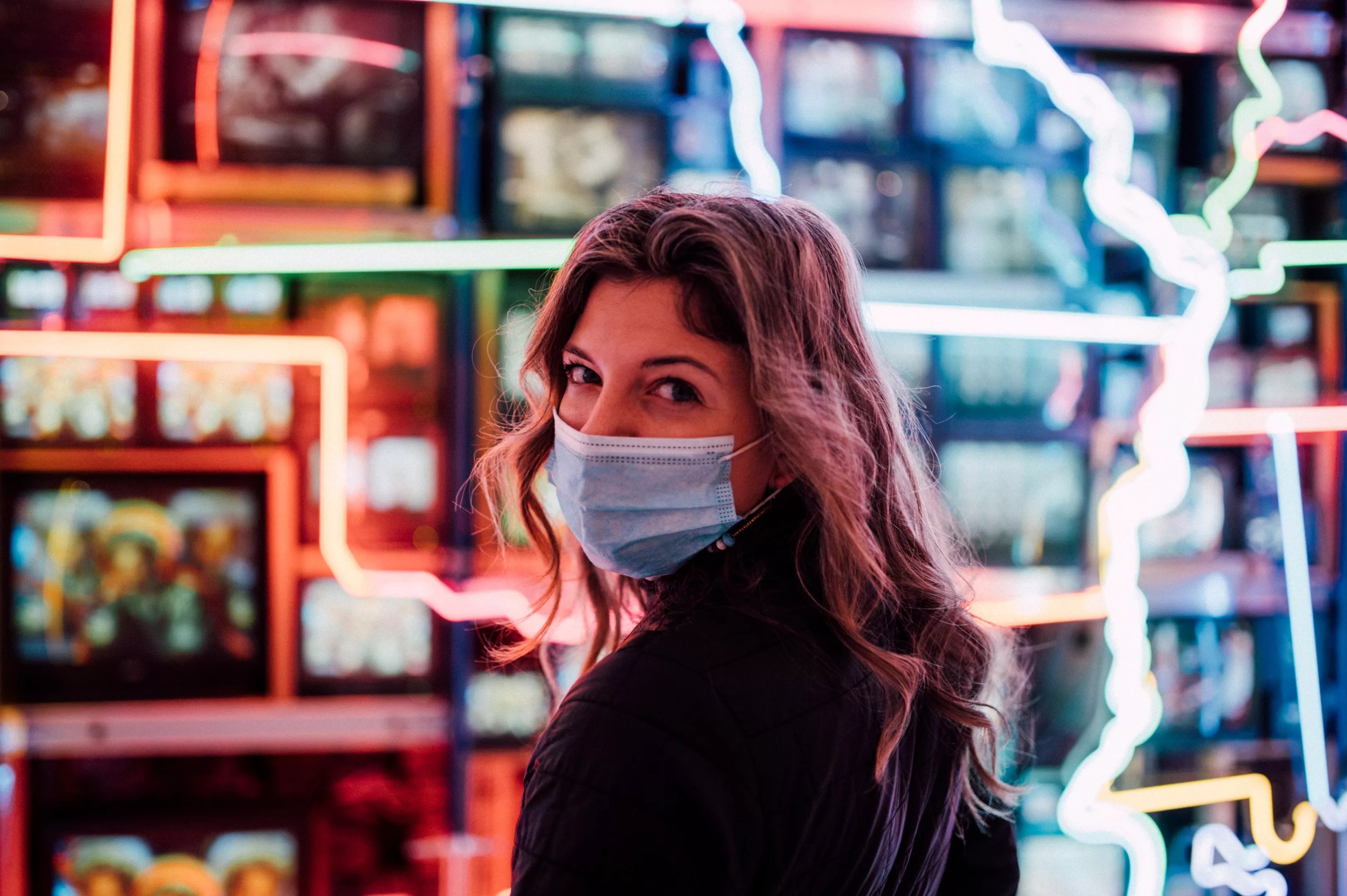
Photo by Heather Morse on Unsplash

Audio By Carbonatix
For more than a year, Dallas County residents and the nation were gripped with fear as the coronavirus upended our lives. Shoppers did their best to distance themselves in grocery store lines. Nearly everyone would don a mask indoors.
But after omicron cases started to nosedive, it seems that many began softening their COVID-19 safety measures. Those who were hypervigilant have been vaxxed and boosted and the Centers for Disease Control and Prevention lightened restrictions. Dallas County reflected the changes in its own threat level, dropping from red to orange late last month.
Now, some public health experts are feeling a bit optimistic, but they still warn against shedding all precautions.
On Friday, Dallas County officials counted 512 new COVID-19 cases and 10 deaths. Dallas County Judge Clay Jenkins said the death total included a child under 10 with underlying conditions. “This is a somber reminder that COVID-19 can affect people of all ages,” he said in a tweet.
This year, make your gift count –
Invest in local news that matters.
Our work is funded by readers like you who make voluntary gifts because they value our work and want to see it continue. Make a contribution today to help us reach our $30,000 goal!
Today we report an additional 512 cases and 10 deaths, including the death of a child under 10 who had underlying conditions. This is a somber reminder that COVID-19 can affect people of all ages.
— Clay Jenkins (@JudgeClayJ) March 11, 2022
We’ve seen a decline in cases before. In September, amid a lull in transmissions, the county’s health director, Dr. Philip Huang, told the Observer that that was subject to change. “A lot of this is with the delta variant,” Huang said. “Hopefully, we aren’t going to get another variant soon.”
Unfortunately, we did. The omicron variant soon crashed into North Texas and prompted worker shortages in hospitals and medical labs.
“This isn’t going to be the last rodeo.” – Dr. Erin Carlson
On Monday, Huang said Dallas County has seen significant improvements over the past several weeks with a drop in cases. The county could be close to lowering its threat level from orange to yellow, he said.
Although the CDC relaxed some COVID-19 guidance, Huang notes that “it’s never bad to wear a mask.” Some settings, such as airplanes and long-term care facilities, still require face coverings.
Huang said throughout the pandemic we’ve learned to “be prepared for the unexpected.” Local authorities will continue to monitor for a potential new variant that’s even more contagious or vaccine-resistant.
Overall, Huang said, “we’re in a much better place than we were in the middle of omicron, and that’s a good thing.”
Dr. Erin Carlson, a professor of public health at the University of Texas at Arlington, is also feeling a bit rosier these days: “I am cautiously optimistic.”
North Texas and other places across the country have reached a better place in terms of cases, she said. Many who weren’t vaccinated before wound up getting omicron, so coupled with those who have gotten the jab, the overwhelming majority of people have some level of immunity.
While things are looking up, Carlson warns it might not mean the end for COVID-19. Until the disease is contained everywhere, including in nations with few resources and low vaccination rates, the virus could get a chance to mutate, she said.
Carlson also advises against celebrating the “end” of COVID when the virus has forever changed so many lives. North Texans and countless others have lost loved ones to the disease. Some have also endured severely debilitating symptoms thanks to “long COVID,” a condition that saddles sufferers with symptoms for weeks and months after initial infection.
“This is far from over,” Carlson said. “There is so much healing that’s being done.”
As with the flu, the novel coronavirus will likely never disappear and we’ll just have to learn how to live with it, Carlson continued.
Regardless, it’s important to remember that many who are medically vulnerable are still scared, especially given that so few people wear masks in public, she said. It’s completely incumbent upon the immunocompromised to protect themselves and decide whether they should risk a trip to an event.
Carlson has one last word of advice for anyone who still needs to hear it: “If you haven’t been vaccinated yet, get vaccinated, because this isn’t going to be the last rodeo.”